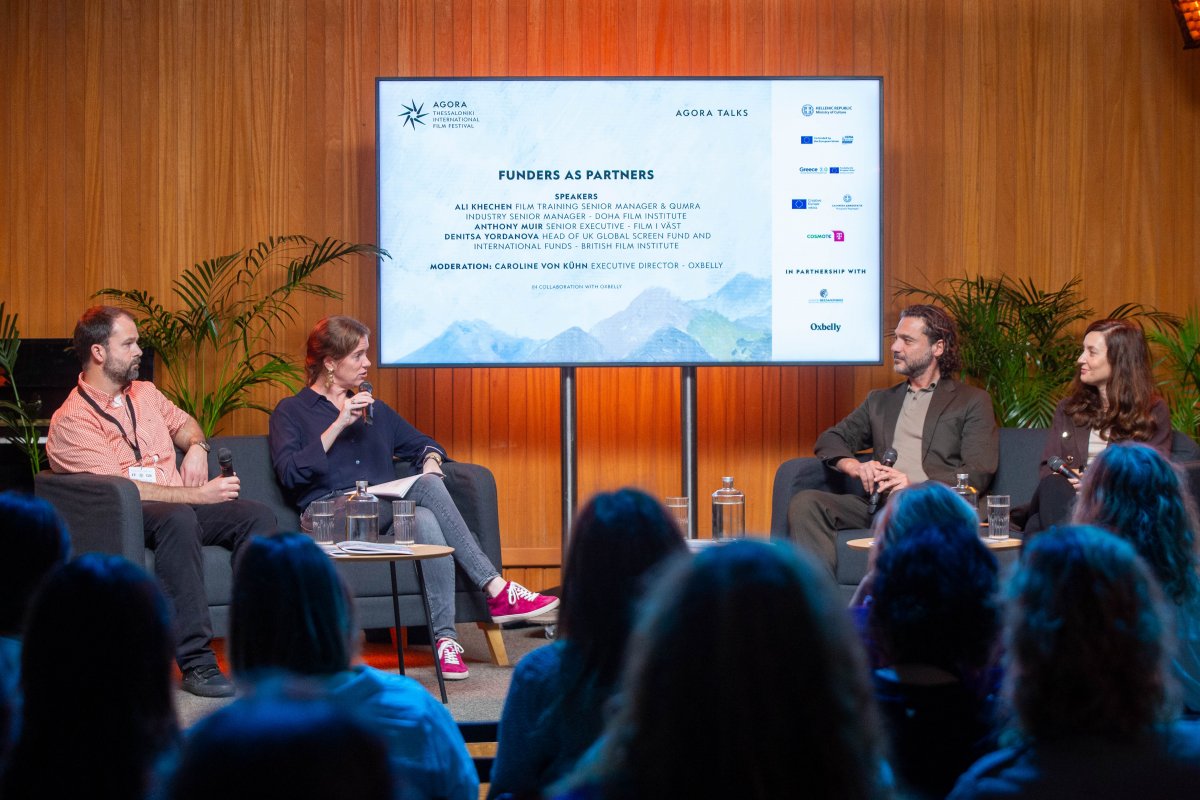On Monday, November 3, a discussion titled “Funders as Partners” took place, as part of the Agora talks at the 66th TIFF. The audience and panel participants were welcomed by the Agora Manager Thanos Stavropoulos, who thanked the festival’s sponsors and especially the Municipality of Thessaloniki for providing Thessaloniki Concert Hall.
Moderated by Caroline von Kühn, Executive Director at Oxbelly, the discussion was primarily focused on the role of funders not only as providers of financial resources but as long-term partners who support artists through a holistic approach. The session explored how different funding bodies support films at the development, production, and post-production stages, and how they measure success, whether by cultural impact or financial return. It also examined what makes a project stand out and how filmmakers can build lasting partnerships with their producers and funders.
Ali Khechen, Film Training Senior Manager and Qumra Industry Senior Manager at the Doha Film Institute, noted that, in recent years, there has been a significant rise in applications from underdeveloped countries and regions in crisis. He added that the Institute particularly seeks to support these projects, as well as emerging filmmakers. For Khechen, success is not just about a film finding its way to film festivals, but also about the filmmaker gaining the confidence he needs to create freely. As best practices, he advised creators not to rush into submitting funding applications but to apply when they truly have something they believe audiences will want to see. Among the Institute’s key selection criteria, he highlighted the director’s artistic vision, their previous work and also a strong script.
Denitsa Yordanova, Head of UK Global Screen Fund and International Funds at the British Film Institute, referred to the misconception that Brexit has negatively affected co-production opportunities with the UK. She emphasized that a project’s potential international impact can help it stand out in the competition for funding. She argued that even though a project’s impact cannot always be predicted, it should be part of the creator’s ambition. She also underlined the importance of an organic connection with the local market. While the BFI values films that can cross borders and reach international audiences, Yordanova added that they are equally interested in the lasting impact a film leaves after its screenings. Commenting on artificial intelligence, she noted that the BFI does not itself use AI, but it does take into account whether or not creators do.
Finally, Anthony Muir, Senior Executive at Film i Väst, explained that the Nordic funding system operates differently. He said that they see funding as a business partnership and an investment, and highlighted that their goal is not only to make a profit but to co-own projects they can be proud of. He advised filmmakers to reach out to Film i Väst after having secured local funding. As a final point, he noted that competition among Swedish creators has gotten particularly intense, prompting Film i Väst to adopt stricter selection criteria to manage the growing number of applications.















